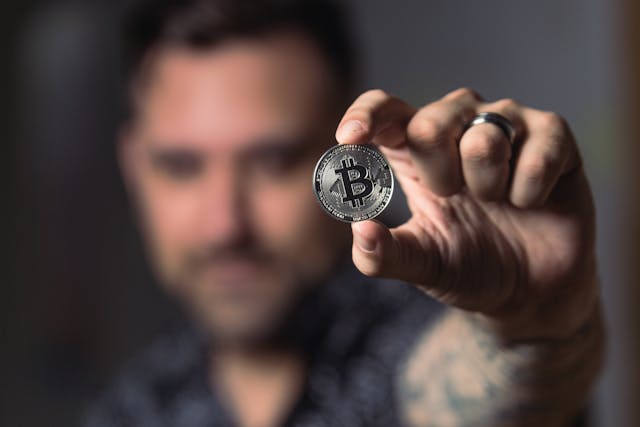The cryptocurrency world, with its complex terminology and rapid-fire evolution, can feel like a daunting labyrinth. But don’t worry, this guide is designed to be your map, helping you navigate the essentials and pointing you towards reliable resources along the way. We’ll break down the fundamentals and provide links to trusted sites to deepen your understanding.
What is Cryptocurrency and Why Should I Care?
In essence, cryptocurrency is digital money, secured by cryptography and operating on a decentralized network. This decentralization is key – it removes the need for traditional intermediaries like banks, potentially leading to faster, cheaper, and more transparent transactions.
Why should you care? Cryptocurrency is more than just a speculative investment. It’s a technology with the potential to:
- Transform finance: Offer alternative financial services to the unbanked and underbanked.
- Empower creators: Provide new ways for artists and musicians to monetize their work (think NFTs).
- Revolutionize supply chains: Improve transparency and efficiency in tracking goods from origin to consumer.
Essential Crypto Concepts (with Links to Learn More):
- Blockchain: This is the foundation of most cryptocurrencies. It’s a distributed, immutable ledger that records all transactions. Think of it as a digital record book that everyone can see but no one can tamper with.
- Learn more: Check out the explanation from Investopedia: https://www.investopedia.com/terms/b/blockchain.asp
- Decentralization: Control is spread across a network, rather than concentrated in a single entity. This increases security and reduces the risk of censorship.
- Learn more: Read a deeper dive on Coindesk: https://www.coindesk.com/learn/what-is-decentralization
- Cryptographic Hash: A one-way function that takes an input and produces a unique, fixed-size output. This is used to secure transactions and verify data integrity.
- Learn more: Understand hashes at Cloudflare: https://www.cloudflare.com/learning/ssl/what-is-a-cryptographic-hash-function/
- Wallet: A software program or hardware device used to store, send, and receive cryptocurrency.
- Learn more: Find the right wallet for you with Blockchain Council: https://www.blockchain-council.org/blockchain/types-of-crypto-wallets/
- Private and Public Keys: Think of your public key as your bank account number (you can share it), and your private key as your PIN (keep it secret!). Your private key allows you to access and control your cryptocurrency.
- Learn more: Understand key pairs with Ledger: https://www.ledger.com/academy/crypto/what-are-public-private-keys
The Major Players: Bitcoin and Its Competitors
- Bitcoin (BTC): The original and still the most popular cryptocurrency. Often viewed as a store of value, like digital gold.
- Ethereum (ETH): A blockchain platform that allows developers to build decentralized applications (dApps) and smart contracts.
- Altcoins: Any cryptocurrency that isn’t Bitcoin. Thousands of altcoins exist, each with different features and goals.
- Track altcoin performance: CoinMarketCap provides comprehensive data: https://coinmarketcap.com/
Common Crypto Terms Decoded:
- HODL: Hold On for Dear Life! A strategy of buying and holding cryptocurrency for the long term, regardless of price fluctuations.
- FOMO: Fear of Missing Out. The feeling of anxiety that you’re missing out on a potentially profitable investment.
- FUD: Fear, Uncertainty, and Doubt. Spreading negative information to create fear and drive down the price of a cryptocurrency.
- DYOR: Do Your Own Research! Always do your own research before investing in any cryptocurrency.
- Gas: A fee required to execute transactions or smart contracts on the Ethereum network.
Getting Started: A Step-by-Step Guide
- Choose a reputable exchange: Coinbase, Binance, Kraken, and Gemini are popular options.
- Compare exchanges: Read reviews on sites like NerdWallet: https://www.nerdwallet.com/best/cryptocurrency/crypto-exchanges
- Create an account and verify your identity: This is required by law for regulatory compliance.
- Fund your account: Deposit funds via bank transfer, credit card, or debit card.
- Buy your first cryptocurrency: Start small and invest only what you can afford to lose.
- Store your cryptocurrency securely: Consider using a hardware wallet for long-term storage.
Important Considerations and Resources:
- Risk: Cryptocurrency investing is inherently risky. Prices are highly volatile, and you could lose your entire investment.
- Security: Protect your private keys and be wary of scams.
- Learn about crypto security: Read the tips from the Federal Trade Commission: https://consumer.ftc.gov/articles/what-know-about-cryptocurrency
- Regulation: The regulatory landscape is constantly evolving. Stay informed about the laws and regulations in your jurisdiction.
- Track cryptocurrency regulations: Monitor updates from the SEC: https://www.sec.gov/spotlight/cybersecurity-enforcement-actions
- Due Diligence: Always DYOR! Read white papers, research the team behind a project, and understand the risks involved before investing.
Conclusion: Embrace the Journey with Caution
The world of cryptocurrency is complex and ever-changing. While the potential rewards are enticing, it’s crucial to approach it with caution, do your research, and understand the risks involved. Use this guide as a starting point, and explore the resources provided to deepen your knowledge. Happy exploring, and remember to DYOR!
Disclaimer: This article is for informational purposes only and does not constitute financial advice. Always consult with a qualified financial advisor before making any investment decisions.


